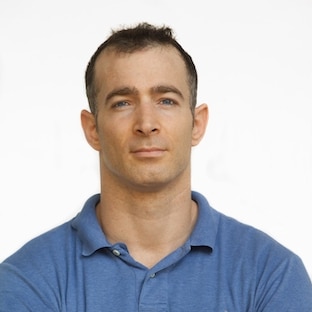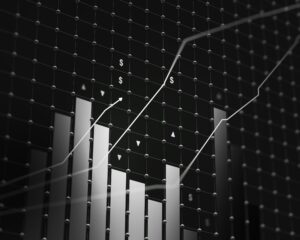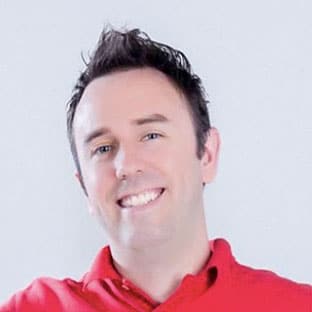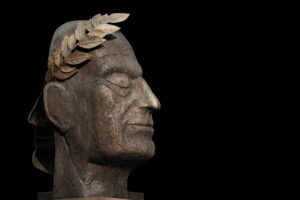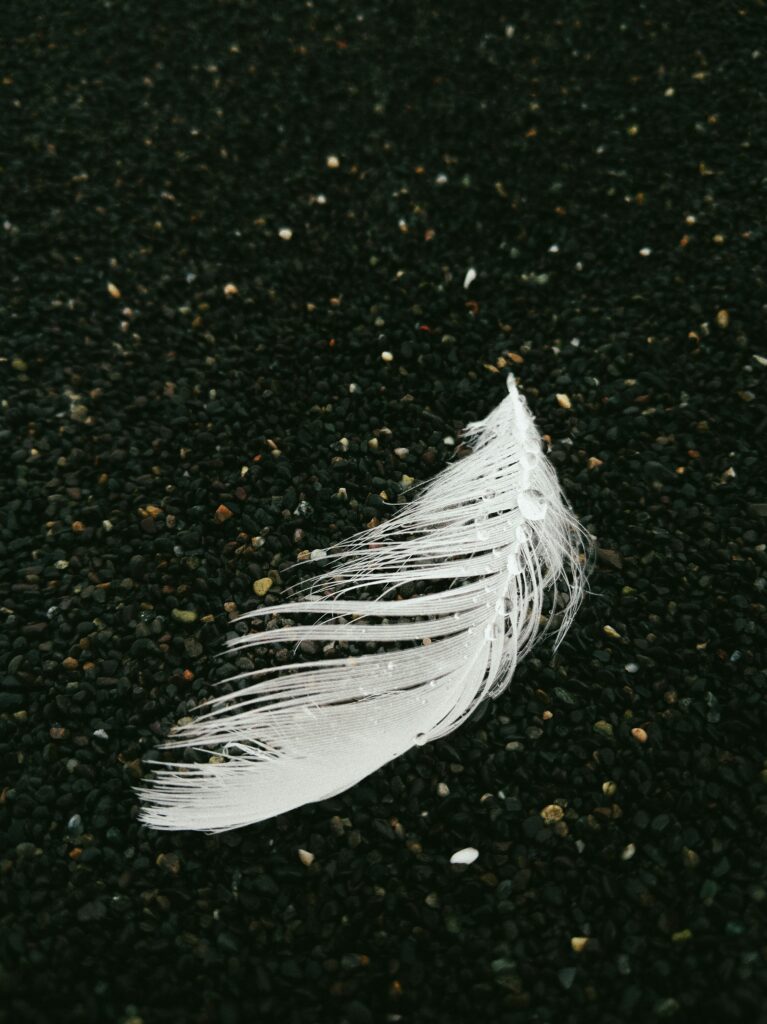
What You'll Learn...
- The critical role of natural light and darkness in regulating your circadian rhythm for better sleep
- The reason for the rising sleeplessness cases worldwide.
- How technology and lifestyle changes improve your sleep quality and productivity.
- How everyone, including you, can reset their circadian rhythms to get deeper and better sleep.
My sleeplessness-induced panic attack
When I traveled to Rome, the Coliseum was at the top of my list. But after three sleepless nights, I was running on empty. But I was excited, I was finally going to be able to see the Coliseum, in person.
So there I was in the middle of the Coliseum, surrounded by tourists, and a full-blown panic attack hit me.
My heart’s racing, I can’t breathe, and all I can think about is how I’m unraveling in one of the coolest places on Earth. It was humiliating.
That day was a massive wake-up call for me. I knew I had to start taking better care of myself, and that was going to start by getting enough sleep. After researching and testing what I learned, my sleep was not just back on track, but better than ever before. I had more energy, I felt smarter, my overall health improved and I felt better about myself.
The Coliseum was a hard lesson to learn, but it changed everything.
So today, I want to talk to you founders who are burning the candle at both ends, and still having trouble falling asleep.
There’s a better way to live.
A major cause of sleeplessness
In 2023, the keyword “sleep” reached an all-time high, according to Google Trends. Why are so many of us struggling?
The answer probably starts with where you’re sitting right now.
In 2001, an EPA study found that the average American spends a mind-boggling 93% of their time indoors within buildings & automobiles.
This number might have increased because of the global pandemic, increased use of smartphones, or the work-from-home revolution.
According to the science of circadian biology, this indoor lifestyle makes your days 100 times dimmer than outdoor environments. And it makes your nights 100 times brighter than the brightest moonlit evening. The unsettling truth is that the average individual today is disconnected from the natural sunlight during the day and darkness by the night – both essential for regulating the biological clocks.
This interruption in the natural light cycle disrupts sleep, impairs health, and ultimately diminishes your performance.
That means founders are more likely to fall victim to a broken circadian rhythm, and they’re the ones who need a good sleep the most
The indoor epidemic on founders
If you want to become a better founder, athlete, partner, or friend, dedicate yourself to a deeper, more fulfilling rest. If you’re not getting good sleep now, this is how you unlock the next level.
Here’s how to get better sleep:
Join "Tales From The Tub"
Newsletter Opt-In
How to reset your circadian rhythm and get better sleep
If you want to become a better founder, athlete, partner, or friend, dedicate yourself to a deeper, more fulfilling rest. If you’re not getting good sleep now, this is how you unlock the next level.
Here’s how to get better sleep:
Step 1: Prioritize morning sunlight exposure
Begin your day by immersing yourself in natural sunlight without windows or sunglasses impeding your exposure (except when necessary for safety). Direct sunlight on your eyes first thing in the morning resets your circadian rhythm, signaling your brain to wake up and energize for the day ahead.
Step 2: Establish a consistent wake-up time
Implement a fixed time to wake up daily to stabilize your circadian rhythm. Consistency reinforces your body’s internal clock, enhancing sleep quality over time and reinforcing the benefits of your morning light exposure. For those who value longevity (everyone?!), a recent study in the Journal Sleep found that sleep consistency beats sleep duration as a more significant predictor of overall mortality risk.
We sleep an average of 26 years of our lives. Take the time to quantify it and gamify it
Step 3: Regulate artificial light exposure after sunset
Fun fact: the first real biohack was fire. It extended our days beyond the rhythms of nature. Similarly, 145 years ago, Edison invented the light bulb, artificially augmenting our days.
In recent years, LED light bulbs have taken us further from our roots because they offer a very high quantity of blue light blanketing our nights. A recent scientific consensus released in 2023 calls to add warning labels on standard nighttime light bulbs and underscores the critical need to minimize blue light exposure (even from seemingly innocent light bulbs!) to preserve our circadian rhythms.
As the evening rolls in, reduce exposure to blue light from screens and switch to bulbs that emit orange or red tones. Keep your light as ‘prehistoric’ as possible.
Step 4: Incorporate technology for monitoring and accountability
Every founder knows if you want to improve something, track it. Check out tools like the Oura Ring or the Whoop Band to track your sleep.
I can share countless sleep optimization tools, but the bottom line is, new habits tend to fail if you don’t see the evidence that they are moving the needle.
We sleep an average of 26 years of our lives. Take the time to quantify it and gamify it!
Step 5: Optimize your sleep environment
Craft a sleep-conducive bedroom that is cool, clean (no mold/poor air quality), low EMF, quiet, and so dark that you can’t see your hand in front of your face. This level of darkness is crucial for signaling your brain that it’s time to rest. It also ensures that you don’t deplete your melatonin reserve in the night, melatonin facilitates deeper and restorative sleep.
Bonus step: Take the lightbulb challenge
When the sun sets, switch to ONLY fire-like colors from candles or orange/red light bulbs. Do this for two weeks and see how your nervous system feels the difference.
From sleep-deprived to peak performers
I’ve witnessed countless transformation stories within our community. Founders who once struggled with sleep now experience unparalleled productivity, creativity, and resilience.
Anyone can make this change. Yes, even you, the founder whose brain doesn’t sleep because they have too many ideas about their company’s future.
By aligning your circadian rhythms with natural light cycles and utilizing technology, you unlock a new realm of potential. You just need to bring the same level of commitment that you have for your company to your sleep quality.
Here’s the deal, if you master your sleep, you are going to have the energy and awareness you need to achieve greatness.
How can you do your best when you’re not getting enough rest?
Mastering sleep isn’t just a luxury for people without stress. It’s a skill you can learn. A skill that makes you sharper and better at everything you do. It’s the ultimate up-level for every part of your life.
-
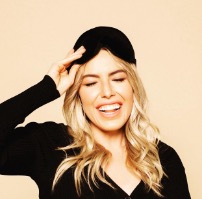
Mollie Eastman is the creator of Sleep Is A Skill, and the host of The Sleep Is A Skill Podcast. Sleep Is A Skill is a company that optimizes people’s sleep through a unique blend of technology, accountability, and behavioral change. After navigating insomnia while traveling internationally, she created what she couldn’t find - a place to go to learn the skill set of sleep. With a background in behavioral change from The Nonverbal Group, she became fascinated with chronobiology and its practical application to sleep and our overall experience of life. Knowing the difference between a life with sleep and without, she’s now dedicated her life to sharing the forgotten skill set of sleep. In the spirit of that goal, she has created the #2 sleep podcast, written a popular weekly sleep newsletter for over five years, partnered with luxury hotels & lifestyle brands, coached the world’s top poker players, and has appeared on over 150 podcasts.
View all posts


